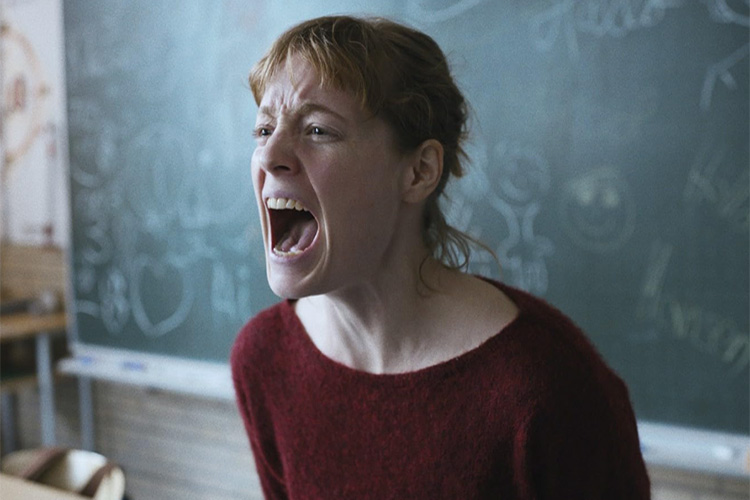I recently had the opportunity to visit the Zagreb Dinner Festival (ZFF), that for a week, of November 6 to 12celebrated his 21st edition. With an official competition dedicated to first films, the parallel sections allowed us to see some important international titles previously premiered at top-class festivals such as Cannes, Berlin or Venice.
However, the festival was presented as a good opportunity to learn about cinema made in the Balkan Peninsula (and beyond), which is generally barely seen in southwestern Europe. So, as soon as I arrived I had the first surprise, “Lost Country”of Vladimir Perisica film that will be released among us in 2024, a powerful drama, whose main character, award-winning debut of Jovan Ginicfunctions as a symbol of a country, the Serbia of the nineties, divided between the past and the new airs: a teenager feels trapped between the ideals defended by his mother, a corrupt socialist policy embodied without fuss by Jasna Duricic (the praised protagonist of “Where are you going Aida?”) and the desire for change promoted by his fellow students, who, in turn, view him with distrust due to his family ties. The film conveys the oppression, confusion and helplessness that the protagonist feels and has a bold and unforgettable ending that distantly refers to that of “The 400 blows”.
From Macedonia came the appreciable tragicomedy “Housekeeping For Beginners”of Goran Stolevski, that country’s candidate for the Oscars. With an excessive plot full of excessive characters, the film finds balance in the interpretation of the always splendid Anamaria Marinca (the protagonist of the Romanian “4 months, 3 weeks, 2 days”). The action takes place in a house that serves as a refuge for people separated from society, especially from the LGBT community, who live as a family. Marinca is impelled by her partner, a gypsy sick with terminal cancer, to marry another of the residents of the house, gay, in order to adopt the children of the dying woman, who, in this way, will enjoy greater resources. . Under the guise of a strident sitcom, the film manages to address serious issues such as racism, homophobia, violence and the difference in opportunities.
For its part, “Excursion”of A Gunjak, Bosnian candidate for the Oscar, leaves the feeling of not having delved deeply enough into the attractive starting point it uses: the acceptance of a lie and the dissemination of it by the victim, in this case, a teenager who is said to have already lost her virginity, which is not true. Honest and respectful in its portrait of her adolescence, the film ends up delivering less than it promises.
From northern Europe came the Icelandic delicacy “Solitude”of Ninna Pálmadóttir, weighed down, however, by a hesitant ending. Pity, because the relationship between a lonely man forced to move, after a million-dollar compensation, from the countryside to the city, and a child, of separated parents, his new neighbor, has moments of great emotion, achieved, furthermore, with the wise decision not to use music in them that directs the viewer’s feelings.
Childhood and adolescence have been a constant in the competition films. The Mexican “Radical”of Christopher Zallajoins the list of films with a benefactor professor (here, Eugenio Derbezwho was also a teacher in “CODA”) in a school with a conflictive environment. Based on real events, the film is as effective and emotional as it is nothing new, except for some remarkable poetic images.
Finally, to the jury, made up of the production companies Renee Hansen y Labina Mitevska y Sebastian Meisedirector of “Great Freedom”decided on the British “How To Have Sex”of Molly Manning Walker, one of the revelation films of the season, since its award-winning screening at Cannes. A crude vision of the loss of virginity in a hypersexualized context in which consent is blurred, the film connects with current events and allows for important debates, which, in part, has motivated the jury to award it. However, it would have been more beneficial if the three members had opted for a less well-known film on the festival circuit, both to give more visibility to that work, and so that the Croatian festival could differentiate itself and mark its own path.
(It should be mentioned that two films already released in Spain were also competing: the American “Past Lives”of Celine Song and the Spanish “20,000 species of bees”of Estibaliz Urresola).
As for the titles expected in parallel sections, among others, the splendid “The Rapture”of Marco Bellocchio, spirited and sharp cinema about a tremendous historical episode related to the Catholic Church; the notable review of judicial cinema “Anatomy of a fall”of Justine Triet (although, perhaps, the Palme d’Or is a little too big for him); and the umpteenth – and therefore, less surprising – (neat) exercise in the style of Sofia Coppola in “Priscilla”.
